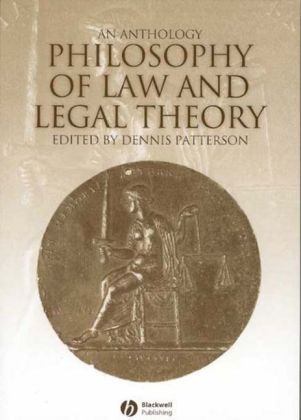Mehr lesen
Informationen zum Autor Dennis Patterson is Distinguished Professor of Law (Camden) and Philosophy (New Brunswick) at Rutgers University. He is the author of Law and Truth (1996) and editor of A Companion to Philosophy of Law and Legal Theory (Blackwell, 1996). He has been a Fellow in the Politics Department at Princeton University and a Visiting Professor at Humboldt University in Berlin and the University of Vienna. Klappentext This carefully selected set of readings presents some of the most important articles in the field. The collection is essential reading for anyone with an interest in legal philosophy. The articles in this anthology are a natural addition to the superb set of original essays in A Companion to the Philosophy of Law and Legal Theory. Taken together, these two volumes provide a compelling overview of the best work in contemporary legal theory and are essential reading for beginning law students. Zusammenfassung This carefully selected set of readings presents some of the most important articles in the field. The collection is essential reading for anyone with an interest in legal philosophy. * Gathers together some of the most important articles in the field of philosophy of law and legal theory. Inhaltsverzeichnis Acknowledgments vii Introduction 1 Part I Nature of Law 7 1 The Path of the Law 9 O. W. Holmes 2 A Realistic Jurisprudence - The Next Step 22 Karl Llewellyn 3 The Model of Rules 46 Ronald Dworkin Part II Relation of Law and Morality 67 4 Positivism and the Separation of Law and Morals 69 H. L. A. Hart 5 Positivism and Fidelity to Law: A Reply to Professor Hart 91 Lon L. Fuller 6 Negative and Positive Positivism 116 Jules L. Coleman 7 On the Incoherence of Legal Positivism 134 John Finnis Part III Theories of Adjudication 145 8 Hard Cases 147 Ronald Dworkin 9 What has Pragmatism to Offer Law? 180 Richard A. Posner Part IV Legal Indeterminacy 191 10 Form and Substance in Private Law Adjudication 193 Duncan Kennedy 11 Legal Indeterminacy 253 Ken Kress Part V Rights and other Legal Concepts 293 12 Some Fundamental Legal Conceptions as Applied in Judicial Reasoning 295 Wesley N. Hohfeld Part VI The Autonomy of Law and Legal Reasoning 323 13 Legal Formalism: On the Immanent Rationality of Law 325 Ernest J. Weinrib 14 Law as Interpretation 374 Ronald Dworkin 15 The Problem of Social Cost 389 Ronald H. Coase Index 420 ...
Inhaltsverzeichnis
Acknowledgments.
Introduction.
PART I. NATURE OF LAW.
1. The Path of the Law (O.W. Holmes).
2. A Realistic Jurisprudence - The Next Step (Karl Llewellyn).
3. The Model of Rules (Ronald Dworkin).
PART II. RELATION OF LAW AND MORALITY.
4. Positivism and the Separation of Law and Morals (H.L.A. Hart).
5. Positivism and Fidelity to Law: A Reply to Professor Hart (Lon L. Fuller).
6. Negative and Positive Positivism (Jules L. Coleman).
7. On the Incoherence of Legal Positivism (john Finnis).
PART III. THEORIES OF ADJUDICATION.
8. Hard Cases (Ronald Dworkin).
9. What has Pragmatism to Offer Law (Richard A. Posner).
PART IV. LEGAL INDETERMINACY.
10. Form and Substance in Private Law Adjudication (Duncan Kennedy).
11. Legal Indeterminacy (Ken Kress).
PART V. RIGHTS AND OTHER LEGAL CONCEPTS.
12. Some Fundamental Legal Conceptions as Applied in Judicial Reasoning (Wesley N. Hohfeld).
PART VI. THE AUTONOMY OF LAW AND LEGAL REASONING.
13. Legal Formalism: On the Immanent Rationality of Law (Ernest F. Weinrib).
14. Law as Interpretation (Ronald Dworkin).
15. The Problem of Social Cost (Ronald H. Coase).
Index.
Bericht
'Patterson collects fifteen of the classic articles in legal theory and presents them whole. The book provides an excellent introduction to several of the major topics making it useful both as a student text and as a sourcebook for academics and non-academics alike.' Larry Alexander, University of San Diego School of Law
'A wonderful selection from the classics in legal theory. It should prove an excellent and invaluable text for classroom use.' Brian Bix, University of Minnesota, author of Jurisprudence: Theory and Context
'Dennis Patterson has produced a fine anthology, one that will be particularly useful for those interested in learning about recent debates in analytic jurisprudence.' Jeremy Waldron, Columbia Law School

